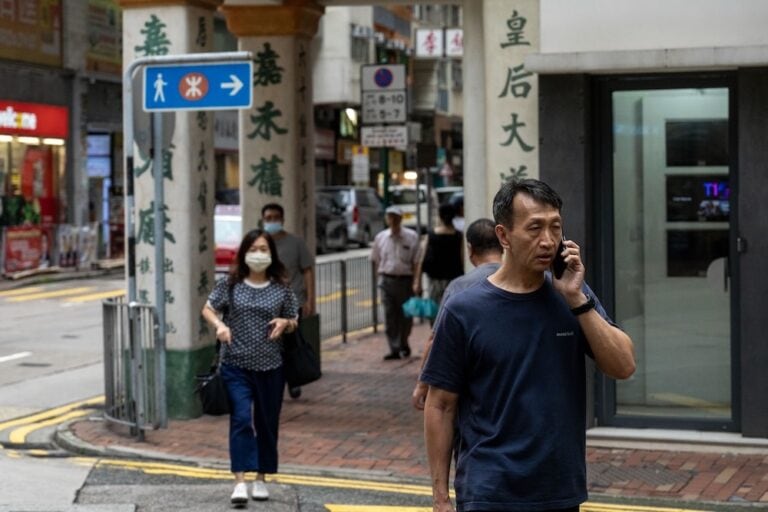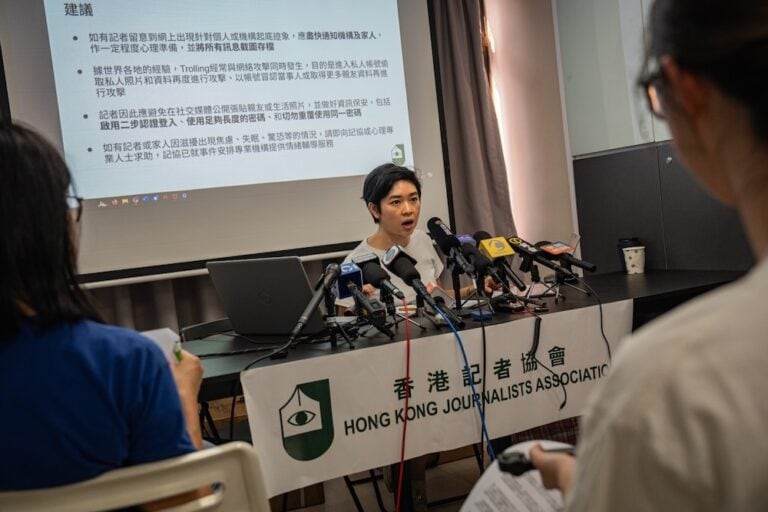Provisions of Hong Kong's privacy law that went into effect 1 April 2013 could subject journalists to five years in jail or large fines if they reveal information that "causes psychological harm" or "causes loss."
The following is a CPJ blog post by Joanna Chiu, CPJ Contributor.
Tens of thousands of residents demonstrated on the streets of Hong Kong on Monday 1 July 2013, the 16th anniversary of the city’s return to Chinese rule. The protests have become an annual rite, but the demonstrators’ demands were quite specific this year. They wanted the resignation of Chief Executive Leung Chun-ying and they called for direct elections. These demonstrators look around and see eroding freedoms and what one commentator, Emily Lau, called “a rule of law in a precarious state.” Journalists are uneasy as well. Vague and potentially onerous aspects of recently passed privacy legislation could put them at risk of harsh punishment.
Provisions of the city’s privacy law that went into effect April 1 could subject journalists to five years in jail or fines up to HK$1 million (US$129,000) if they reveal information that “causes psychological harm” or “causes loss.” The law also gives targets of investigative reporting the right to “request to access [the] personal data” collected by journalists. Journalists may mount a defense that they are reporting in the public interest, but that key aspect of the law seems vague.
Read the full story on CPJ’s site.


